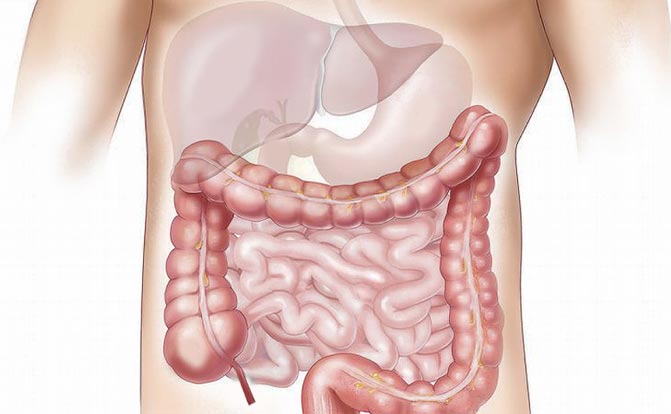Generally, fatty liver disease is the presence of the excess fat in your liver. Presence of extra fat cause many types of liver diseases like alcoholic fatty liver disease (AFLD) and nonalcoholic fatty liver disease (NAFLD). Researchers at Virginia Commonwealth University (VCU) worked on the identification of an asymptomatic nonalcoholic fatty liver disease (NAFLD). As the name shows that this condition does not involve alcohol. In the United States, it is the main cause of liver disease.
An associate professor, Mohammad Siddiqui, along with researchers with expertise in hepatology, cardiology and exercise physiology has collaborated on a clinical trial to find the connection between the liver and heart. Their successive experiments and clinical studies showed that patients having fatty liver diseases have a connection with the Exercise Intolerance and Heart failures. Mohammad Siddiqui is the senior author of this study which is named as, “Diastolic Dysfunction and Exercise Intolerance are Linked to Severity of Hepatic Fibrosis in Nonalcoholic Fatty Liver Disease”. In Chicago, the team has shown their research study at the American Heart Association Scientific Sessions conference, in the recent present.
As I mentioned earlier that the Nonalcoholic fatty liver disease is asymptomatic, which means that it shows no symptoms. Due to which people get no care in the initial stages of this disease that results in the development of this disease by time. Mohammad Siddiqui said that “We are doing the examination that shows possible guidelines for the best evidence-based consideration”. Justin Canada a Ph.D. scholar and an exercise physiologist at VCU Heart centre presented this study at the conference in Chicago. Researchers from all over the world gathered at this conference to get some latest information about the advancements in cardiovascular science.
Exercise Intolerance
In the past, most studies have been done to show that how heart failures stimulate liver diseases. But the VCU researchers have done their research on the patients having liver disease and how it leads to heart failures. Around 35 patients with non-alcoholic fatty liver disease demonstrated at biopsy who did not have heart failure indications took an interest in a clinical study at VCU Medical Center. Patients got echo test reports and stress echo test reports while researchers observed their function of the heart during exercise on a treadmill. The examination was the first of its sort to incorporate liver biopsies and exercise intolerance evaluation along with the questionnaires in the general investigation.
Siddiqui said, “With the help of questionnaires, we were able to concentrate on how the patients feel”. This study helped the researchers found that individuals having a severe kind of fatty liver disease, which is known as nonalcoholic steatohepatitis (NASH) have less exercise capacity. The development stages of this disease showed more intolerance towards exercise. NASH is the main cause of inflammation in the liver. About 20 % nonalcoholic fatty liver disease patients have NASH. “Patients having inflammation and scarring in the liver cannot perform the same level of activity and exercise as somebody who does not show these symptoms”, Siddiqui said.
The reason why NAFLD patients develop NASH is still unknown. However, some researcher proposed that it is due to the manipulation in the genetic makeup. The other studies showed that NASH is developed in the NAFLD patients having the following reasons:
- Obesity
- Type 2 diabetes
- Metabolic syndromes
- High cholesterol level in the body
For the best screening of the patients more research and improve clinical outcomes are needed. The VCU medical center explained what is happening in the patients having less damage to their liver or heart. The study showed that patients having fatty liver disease are more vulnerable to develop heart diseases.
The Translational Science Scholar Program
For Clinical and Translational Research, Siddiqui credits his capacity to lead the research for the investigation to the VCU C. Kenneth and Dianne Wright Center, which strengthens clinical research at VCU. The research study that was demonstrated at the AHA conference was supported by $50,000 endowment fund that is received by Siddiqui through the Wright Center a year ago. This endowment fund supports translational and clinical research that helps in the new laboratory discoveries and preclinical examinations toward the improvement of clinical trials.
Earlier this year, Mohammad Siddique was named as first Translational Science Scholar at Wright Center. This Translational Science Scholar program is very useful as it allows researchers to utilize 40% of their time in research for 3 years. The associate director of the Wright Center, Patrick Nana-Sinkam said, “We made the Translational Science Scholar program as a method for supporting a various group of researchers who work along the range of translational science”. Moreover, he said, “We made the Translational Science Scholar program as methods for supporting a various group of researchers who work along the range of translational science”.
Mohammed Siddique said that the Translational Science Scholar program and endowment fund is the key to his success. He said, “This program gave me enough time to focus on my research and to find out the reasons where the liver disease treatment is going”. “The Wright Center has provided the opportunities that allowed me to research in such a way where I can do both works at the same time. To look at my patients and in the meantime can research at my patient’s conditions. “I am ready to give more nuanced care to those patients dependent on logical proof that goes beyond the present guidelines.”















